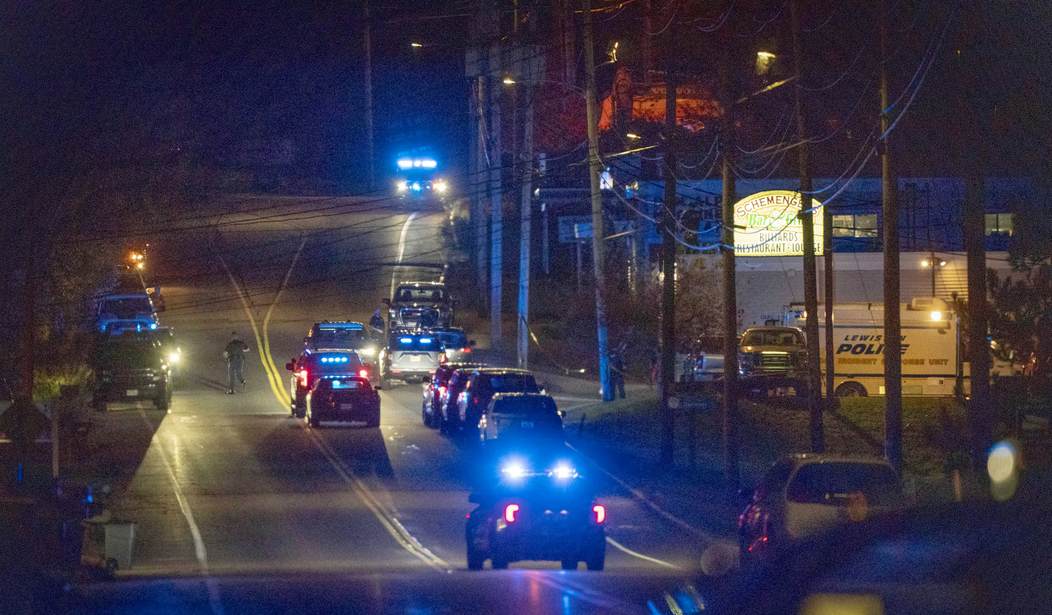Top News
Did We Learn Anything From the Maine Mass Shooter? Probably Not

Now we know how the story of mass shooter Robert Card in Maine ended, barring some unexpected additional revelations. Officials held a press conference this morning where they revealed that his body had been found in a storage trailer in the parking lot of a recycling center. He was apparently the last victim of his own shooting spree. The final death toll wasn’t quite as high as some had speculated during the manhunt, but it was still a considerable number. The recriminations and finger-pointing began in the media before all of the bodies had been recovered, but the public is now left to figure out what went wrong, if the system broke down in some fashion, and if there’s anything we can learn from all of this to help deter similar attacks in the future. (NY Post)
Robert Card, the suspect believed to be responsible for one of Maine’s deadliest mass shootings, has been found dead two days after allegedly killing 18 people at a bowling alley and bar on Wednesday, according to law enforcement sources.
The body of the 40-year-old trained firearms instructor with past mental health issues was located in the woods near Lisbon, where his vehicle and a gun were found after the shooting, according to federal law enforcement sources.
Card was the subject of a massive manhunt in connection to two shootings in Lewiston, Maine’s second-largest city, that erupted Wednesday night.
Robert Card truly seems to have slipped through the cracks and this was a case of unfortunate timing more than any glaring gap in the safety precautions are are already in place. We have since learned that he legally purchased the rifle he used only days before he was subjected to a psychiatric evaluation and two weeks of confined hospitalization. So he probably lied when filling out his application to purchase the firearm if he knew that he was having potential mental health issues and substance abuse problems related to alcohol. But if there was no official record of those things available yet, there really wasn’t a way to detect the issue and prevent the purchase.
The Army may have dropped the ball to a certain degree. A month earlier, Card reportedly told Army officers that he was “hearing voices” and had thoughts of “hurting other soldiers.” But he was also described as being intoxicated and “acting belligerently.” He was given a command referral to seek treatment but was released after treatment for “suspected intoxication.” So rather than being fully aware of just how badly the wheels were coming off, the Army potentially thought they were just dealing with another drunk soldier with a proclivity for fighting.
There were clearly people in the community who had seen warning signs because there were some who told police about Card’s claims of hearing voices as soon as the manhunt and investigation began. But they apparently never reported that to authorities or, if they did, they didn’t raise serious enough concerns for anyone to get a warrant and come remove any firearms from his home. But how can anyone know for sure? For every drunk, angry person with odd behaviors who goes on to commit a horrendous act like this there are hundreds if not thousands of others who just go sleep it off or do no worse than get into a bar brawl.
If there was no legal impediment to the firearm purchase at the time and no compelling argument to take it away from him before hand, what could have been done to stop Robert Card short of assigning him a baby sitter? The automatic Democratic response to these events is simply to ban all guns, but that’s what they always say. And criminals don’t tend to pay attention to gun laws. While red flag laws remain controversial among many Second Amendment supporters, Maine already had the equivalent of such a law in place and it didn’t work. What other proposals are on the table that could have prevented this outcome? I’m not hearing any thus far.
Read the full article here


















